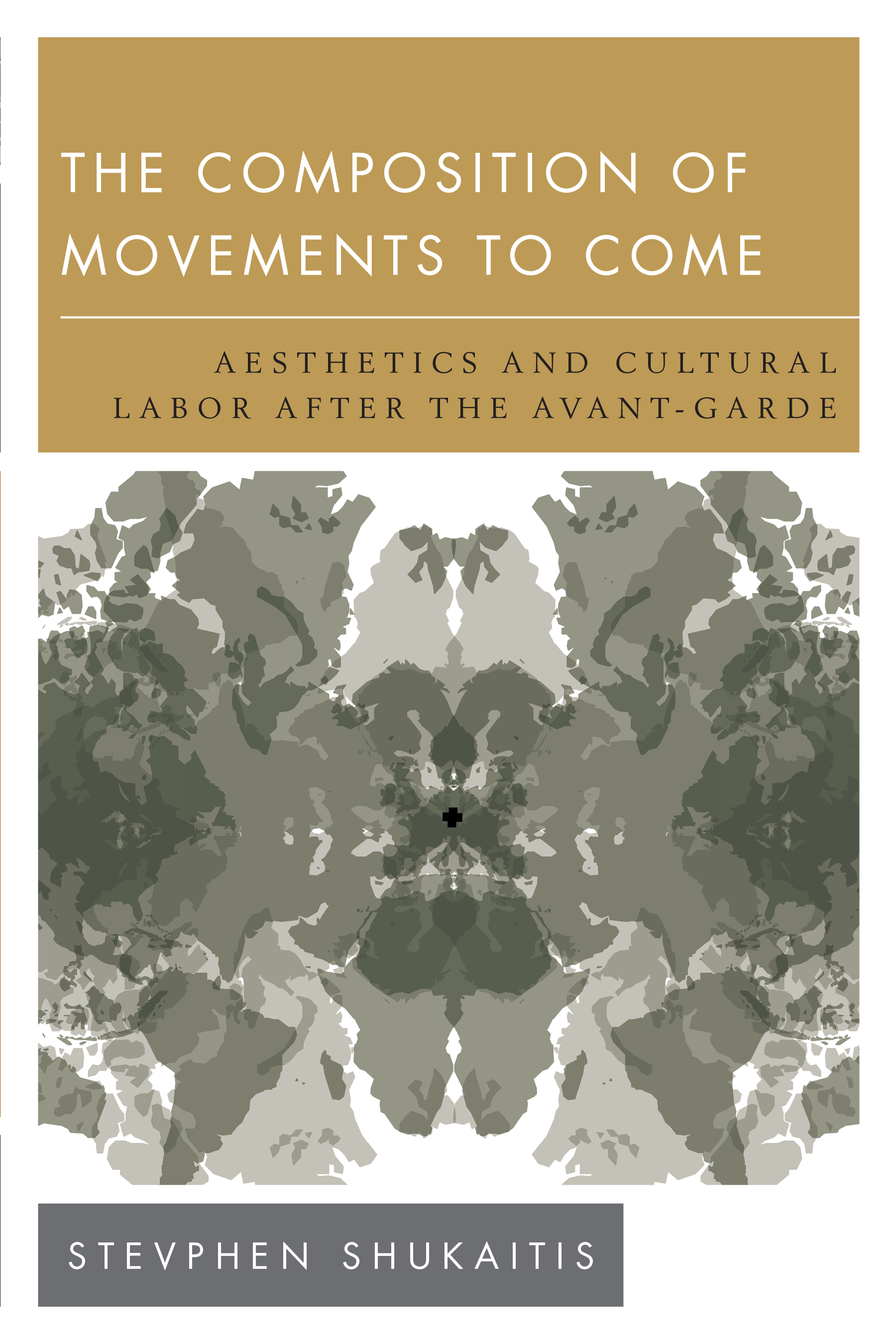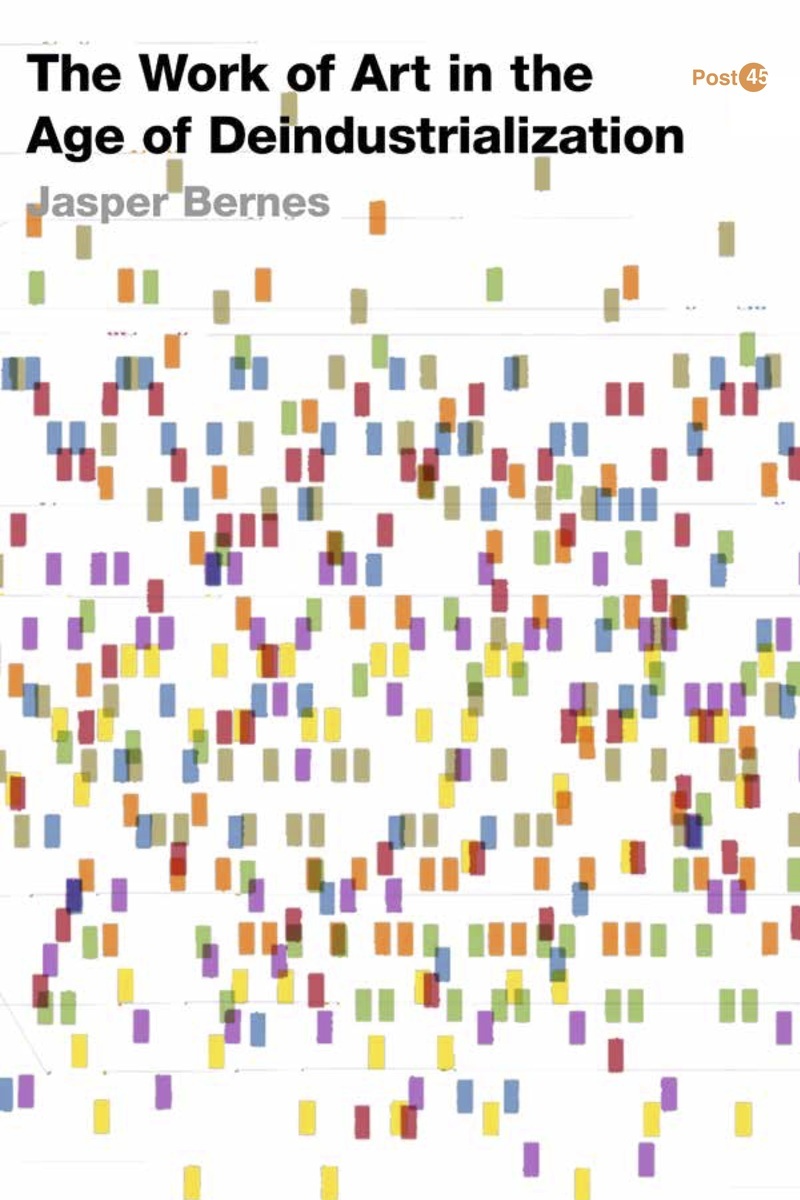Stevphen Shukaitis: The Composition of Movements to Come: Aesthetics and Cultural Labor after the Avant-Garde (2016)
Filed under book | Tags: · aesthetics, affect, antagonism, art history, autonomy, avant-garde, capitalism, class, creativity, everyday, imagination, immanence, labour, marxism, media, organization, situationists, strategy, value

“How does the avant-garde create spaces in everyday life that subvert regimes of economic and political control? How do art, aesthetics and activism inform one another? And how do strategic spaces of creativity become the basis for new forms of production and governance?
The Composition of Movements to Come reconsiders the history and the practices of the avant-garde, from the Situationists to the Art Strike, revolutionary Constructivism to Laibach and Neue Slowenische Kunst, through an autonomist Marxist framework. Moving the framework beyond an overly narrow class analysis, the book explores broader questions of the changing nature of cultural labor and forms of resistance around this labor. It examines a doubly articulated process of refusal: the refusal of separating art from daily life and the re-fusing of these antagonistic energies by capitalist production and governance. This relationship opens up a new terrain for strategic thought in relation to everyday politics, where the history of the avant-garde is no longer separated from broader questions of political economy or movement, but becomes a point around which to reorient these considerations.”
Publisher Rowman & Littlefield, London & New York, 2016
New Politics of Autonomy series
ISBN 9781783481736, 1783481730
xx+176 pages
Reviews: Gregory Sholette (Critical Inquiry, 2015), Marc James Léger (Afterimage, 2016), Martin Parker (Culture Machine, 2017).
PDF (4 MB)
Comment (0)David Macey: Frantz Fanon: A Biography (2000–)
Filed under book | Tags: · algeria, biography, colonialism, communism, existentialism, france, literature, marxism, négritude, philosophy, psychiatry, race, racism

“Born in Martinique, Frantz Fanon (1925–61) trained as a psychiatrist in Lyon before taking up a post in colonial Algeria. He had already experienced racism as a volunteer in the Free French Army, in which he saw combat at the end of the Second World War. In Algeria, Fanon came into contact with the Front de Libération Nationale, whose ruthless struggle for independence was met with exceptional violence from the French forces. He identified closely with the liberation movement, and his political sympathies eventually forced him out the country, whereupon he became a propagandist and ambassador for the FLN, as well as a seminal anticolonial theorist.
David Macey’s eloquent life of Fanon provides a comprehensive account of a complex individual’s personal, intellectual and political development. It is also a richly detailed depiction of postwar French culture. Fanon is revealed as a flawed and passionate humanist deeply committed to eradicating colonialism.”
First published by Picador, 2000
Second edition published by Verso, London, 2012
ISBN 9781844677733, 1844677737
xxii+639 pages
Reviews: Megan Vaughan (London Review of Books, 2001), Peter Lennon (The Guardian, 2001), Mark Christian (Journal of Colonialism and Colonial History, 2002), Gareth Stanton (History Workshop Journal, 2002), Ciaran Mulholland (Socialist World, 2002), Godwin Kwadwo Osei-Nyame (Research in African Literatures, 2004), Kirkus Reviews (2001), Publishers Weekly (2001), Stephen Howe (New Humanist, 2013).
Interview with author (Theory, Culture & Society, 2011).
Comment (0)Jasper Bernes: The Work of Art in the Age of Deindustrialization (2017)
Filed under book | Tags: · aesthetics, avant-garde, capitalism, cybernetics, information, labour, literary criticism, marxism, poetry, postindustrial, productivity, taylorism, technology, work

“A novel account of the relationship between postindustrial capitalism and postmodern culture, this book looks at American poetry and art of the last fifty years in light of the massive changes in people’s working lives. Over the last few decades, we have seen the shift from an economy based on the production of goods to one based on the provision of services, the entry of large numbers of women into the workforce, and the emergence of new digital technologies that have transformed the way people work. The Work of Art in the Age of Deindustrialization argues that art and literature not only reflected the transformation of the workplace but anticipated and may have contributed to it as well, providing some of the terms through which resistance to labor was expressed. As firms continue to tout creativity and to reorganize in response to this resistance, they increasingly rely on models of labor that derive from values and ideas found in the experimental poetry and conceptual art of decades past.”
Publisher Stanford University Press, 2017
Post ’45 series
ISBN 9780804796415, 0804796416
viii+231 pages
Reviews: Stevphen Shukaitis (Marx & Philosophy Review of Books, 2017), Julian Murphet (Affirmations, 2017), Vince Carducci (Public Seminar, 2017).
Comment (0)
